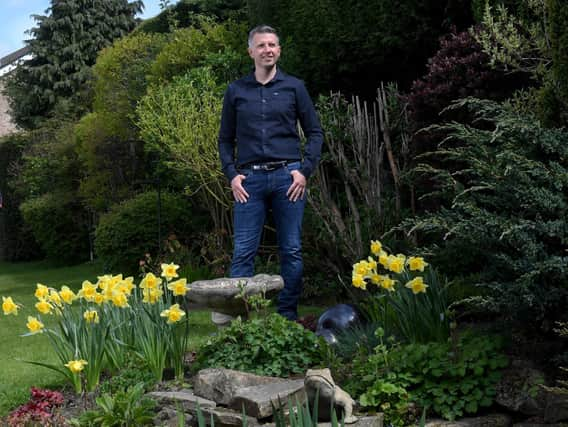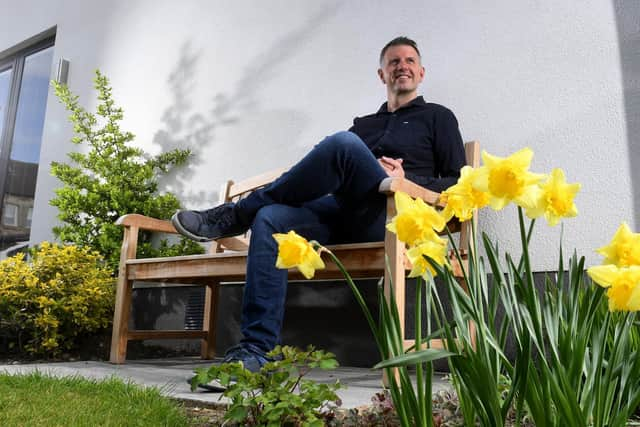How Sustainable Arts In Leeds is moving the city's culture sector to net zero emissions


Leeds may be Yorkshire’s biggest city, but its creative scene can hardly be judged one of the earth’s great polluters.
It’s perhaps another reminder of how urgent the task of scaling back the climate crisis is, then, that despite this, a wide-ranging network has tasked itself with making the arts sector in the West Yorkshire city do its bit to become a “net zero” emitter over the next decade.
Advertisement
Hide AdAdvertisement
Hide AdSustainable Arts in Leeds (SAIL) initially started with a “bromance”, though, co-founder Phil Holdgate says.


He has worked for ITV in Leeds since the days when it was still Yorkshire Television in the late 1990s, working in a number of programme finance and project management roles.
Gradually he became more interested in sustainability, getting involved with the Albert resource - essentially a toolkit for TV companies to measure and improve their environmental impact - and working to help soaps such as Leeds’s Emmerdale and Coronation Street be greener.
Phil became ITV’s head of production sustainability last December after the channel pledged to become carbon net zero by 2030.
Advertisement
Hide AdAdvertisement
Hide AdBut a few years back he met Leeds-based Opera North’s sustainability champion Jamie Saye at a networking event. That “bromance” was formed over mutual successes and struggles in their approach to the environment, feeling as though they were “flying solo” with a “one-might-fight-against climate change” predicament.
Phil, 43, of Baildon, says: “I’m a big fan of collaboration because, you know, the clock’s ticking with time but climate change is not an open-ended thing. We’ve got some really clear science-backed dates where we actually really need to take action by. And I was chatting it over with my then-line manager and I was also aware of a group that existed in Manchester, they’re called the Manchester Arts Sustainability Team.
“And Jamie was also aware of them and I said to my line manager, ‘Isn’t it a shame there isn’t anything like this in Leeds?’ And he just turned around and said ‘Well, why don’t you set something up then ?’ And walked off an got a cup of coffee. I was in the car on the way home that night thinking ‘Oh, well if I don’t do it, who will?’ So a little bit of hesitancy to be quite honest.
“I got back in touch with Jamie. He is Mr Positive, he is Mr-Let’s-Just-Get-On-With-It and said ‘Yeah sure, great idea, sign me up’. So, yeah, we got a few mutual contacts together, just had a bit of a chit-chat and there was obvious appetite there for this.”
Advertisement
Hide AdAdvertisement
Hide AdSAIL has been running as a community interest company for around a year and has a membership which includes, along with Opera North and ITV, the likes of Leeds City Council, Screen Yorkshire, Channel 4, Leeds Arts University and more. It also caters for individuals - a must in an industry populated with freelance workers.
The Government has set a target to reduce the UK’s emissions by at least 68 per cent by 2030, compared to 1990 levels.
Since the 2000s, the region’s own carbon footprint has decreased by 45 per cent, according to Yorkshire Climate Commission director Professor Andy Gouldson.
SAIL has drafted its own year-by-year plan for arts organisations in Leeds to collectively become net zero - achieving a balance between the amount of greenhouse gas emissions produced and the amount removed from the atmosphere - by 2030.
Advertisement
Hide AdAdvertisement
Hide AdBut a significant part of the challenge is the various organisations persuading their supply chains to get on board.
Phil says: “We’re not a huge emitter by any by any stretch of the imagination. All I can say is, you know, we can only influence that which is in our sphere of control, if you like.
“It just so happens that we are working in the creative and cultural sector and, you know, if everyone had that same attitude, same approach then actually you know we’re well on our way to succeeding and combating the worst effects of climate change.
“We hope that others will sit up and take notice of what we’re doing and maybe there’s a little bit of inspiration to be had there for other sectors...that maybe do create bigger emissions.”
Advertisement
Hide AdAdvertisement
Hide AdHe says that the industry needs to look at how it powers itself - during tours or theatre productions, for example - but adds that the “biggest challenge we’ve got is around travel and transportation”.
Phil says: “That is a real challenge because at the minute the solutions aren’t quite there yet, that are either cost-effective or are fit for purpose and really suitable for what we need.”
Zero-emission vehicles and electric cars are also expensive.
“So they’re the really two big, chunky pieces of work and also the emissions that we are directly liable for are quite small but a lot of our emissions sit in our supply chain. So again, you know, is there an opportunity there to come together and collaborate and really share good practice?”
Advertisement
Hide AdAdvertisement
Hide AdHowever, Phil thinks the industry’s influence “can go way beyond our direct emissions” by using what are already its prized assets.
“By far and away what we think the biggest impact that we can have, as a sector, is actually getting the story out there - we’re storytellers, we are creative people inherently so how can we influence the public? So either somebody visiting a museum, somebody watching a theatre production, an opera or, you know, watching Emmerdale on a weekday night.
"If we’re planting some of these great stories and, you know, explaining to people - we call it ‘normalising good behaviour’ at ITV - how can we get things into especially the soaps? It’s a perfect example where you can show someone maybe having a meat-free day or plugging an electric car in or choosing to cycle, or whatever. That’s just normal and if you make that normal, and people are seeing that then you can really start to influence people in that way.”
One stumbling block is funding - because SAIL is not a charity or arts organisation it doesn’t qualify for the usual grant schemes, says Phil.
Advertisement
Hide AdAdvertisement
Hide Ad“It is going to be a bit of a challenge because inherently the art sector, in inverted commas, it hasn’t got a lot of money floating around, it never has to begin with and I wonder if it ever will do, I don’t know.
“Especially coming off the back of, hopefully out of the other end of, COVID as well. You know, it’s just been a battle for people to survive.”
There is an obvious difference in what bigger and smaller organisations can afford in the first instance, though.
Phil says: “You’re not really comparing apples with apples a lot of the time, and therefore, you know, I feel at ITV, and I know Jamie feels the same at Opera North, the bigger organisations should be really supporting some of the smaller ones as well, and sharing. We do have more resource so therefore how can we pull that together and share?”